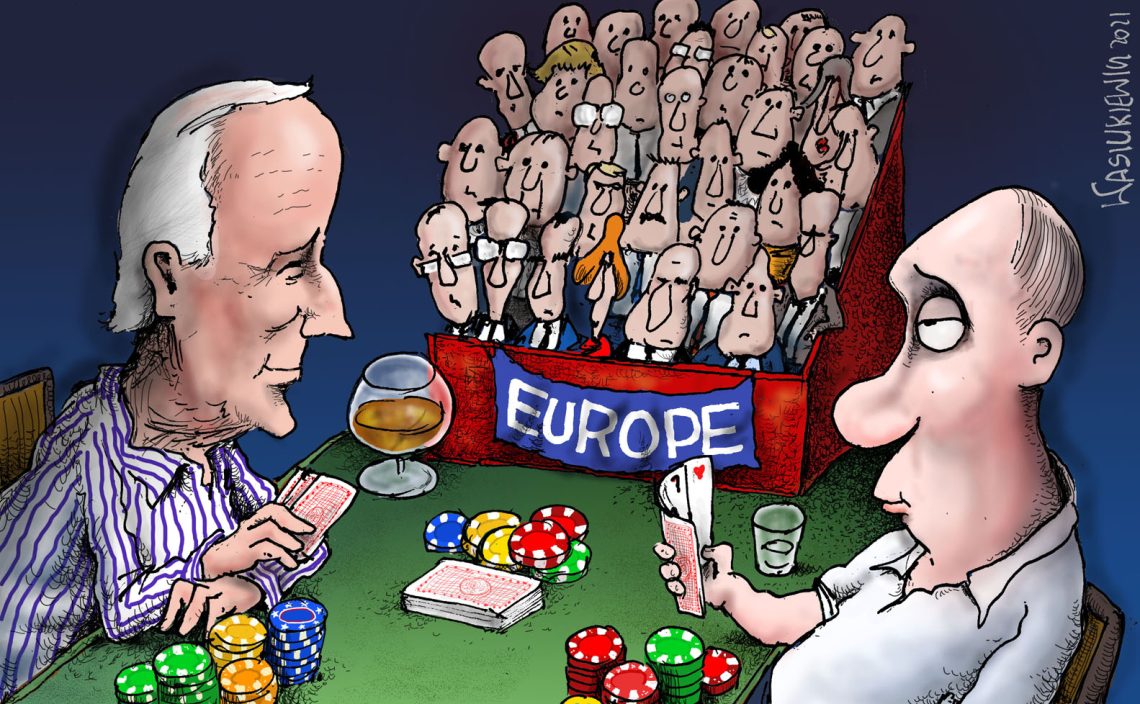NATO-Russia security tensions: Escalating tit-for-tat
Moscow has challenged Washington to enter serious negotiations. It demands changes in NATO’s posture in Europe that, if granted, would alter the geopolitical balance on the continent to Russia’s advantage. A high-stakes poker game begins.

In a nutshell
- The Kremlin demands rolling back many of post-Cold War changes in Europe
- U.S.-Russia competition has been intensifying over the last decade
- The West has no coherent strategy in relations with Russia
Moscow has sent an ultimatum of sorts to Washington just before Christmas. It demands that from now on, NATO must not accept new members without Russia’s consent and that the Western alliance keeps no armed forces close to its borders. Ukraine and Georgia are to be barred from joining NATO, and cannot act as de facto members by hosting NATO troops on their territories. Russia also wants all foreign NATO entities to leave the Baltic states and Poland – countries that belong to the alliance. It further insists that the Americans remove their nuclear weapons from Europe.
The Kremlin knows perfectly well that these demands are unrealistic. However, they are meant to give Russia a strong bargaining position, and to make its leaders appear forceful, both at home and abroad. The “ultimatum” comes at a time when the U.S. is very much involved with an assertive China, which challenges Taiwan.
Escalating rivalry
What happened? Rivalry between Russia and the West reignited some 10 years ago. Lately, the West has been angered by alleged Russian covert efforts to interfere in elections in the U.S. and Europe and its poisonous anti-Western propaganda on social media. In its turn, the West supports the opposition in Russia; the Kremlin’s concern that Europe and the U.S. want to be involved in Russian governance is not unfounded. The mutual distrust is colossal.
The sticky issue is that the Western alliance has no real strategy for dealing with Russia.
In response to Russia’s annexation of Crimea in 2014 and its support of separatists in Ukraine’s Donbas region, the West imposed extensive economic sanctions on the aggressor. They have had little effect. Europe – and especially its largest economy, Germany – is heavily dependent on Russian gas, as much as Russia depends on the export revenues.
Since Russia will not leave Crimea, the sanctions regime has become permanent. Oddly, Berlin has been adamant about keeping the sanctions in place – while agreeing with Moscow on the North Stream gas pipeline designed to circumvent Ukraine and Central European countries.
High-stakes poker game
Twice in 2021, Russia ramped up its pressure on NATO by expanding its forces close to Ukraine’s borders, including a significant buildup in the last several weeks. The West responded by delivering more arms to Ukraine, threatening to tighten economic sanctions and putting the North Stream pipeline on ice because of an alleged legal problem. However, such measures were unlikely to impress or deter Russia.
And now, the threats have provided the Kremlin with the perfect opportunity to respond in a tit-for-tat fashion: it issued an “ultimatum.” Russia wants to force the U.S. to the negotiating table; it perceives the European powers as secondary actors. A high-risk, high-stakes geopolitical poker game is unfolding, but the West will need to address the situation.
The sticky issue is that the Western alliance has no real strategy for dealing with Russia. Over the last decade, Americans and Europeans have accomplished little by complaining about the Kremlin’s actions and responding meekly to them. Of late, Brussels has upped the ante by reacting with belligerent words toward Russia and China. But playing martial card is grotesque, as the EU has no adequate defense capabilities.
The two sides now face the same challenge; they must keep the game under control and avoid an accidental escalation.
